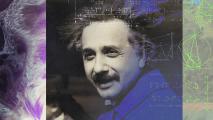GPT AI will help teach the most popular course in the world
A Harvard University professor is developing an AI chatbot to help teach his popular computer science course, giving the thousands of students who take it personalized support 24 hours a day.
The challenge: CS50: Introduction to Computer Science is Harvard University’s largest course, and in addition to the hundreds of students who attend it in person every year, another 4.7 million have taken the class online, making it the most popular online course in the world.
“Providing support tailored to students’ specific questions has been a challenge at scale.”
David J. Malan
Professor David J. Malan has dozens of course assistants and teaching fellows (TFs) helping him lead the class each semester, but even then, it’s hard to keep up with grading course work and ensuring students get the individualized attention they need to thrive.
“Providing support tailored to students’ specific questions has been a challenge at scale, with so many more students online than teachers,” Malan told Bloomberg.
The idea: To make up for the shortage of human staff, Malan says his team is now experimenting with large language models — AIs that can interpret and respond to natural language — including OpenAI’s GPT-4 and GPT-3.5, which powers the popular ChatGPT chatbot.
The goal is to create a “CS50 bot” that can respond to discussion board questions, explain error messages in simple terms, and help students identify issues in their code. The aim is to make it a bit less helpful than ChatGPT — instead of giving students answers, Malan wants it to guide them to solutions.
“Our own hope is that, through AI, we can eventually approximate a 1:1 teacher:student ratio for every student in CS50, as by providing them with software-based tools that, 24/7, can support their learning at a pace and in a style that works best for them individually,” Malan told the Harvard Crimson.
“Through AI, we hope to … reallocate TFs’ time toward more meaningful, interpersonal time with their students.”
David J. Malan
Looking ahead: Malan told the Crimson that his staff is already beta testing the CS50 bot in the summer version of the course. In addition to developing that, they’re also looking for ways that AI could help them grade students’ work more efficiently.
“[A]ssessing, more qualitatively, the design of students’ code has remained human-intensive,” he said. “Through AI, we hope to reduce that time spent, so as to reallocate TFs’ time toward more meaningful, interpersonal time with their students, akin to an apprenticeship model.”
We’d love to hear from you! If you have a comment about this article or if you have a tip for a future Freethink story, please email us at [email protected].






